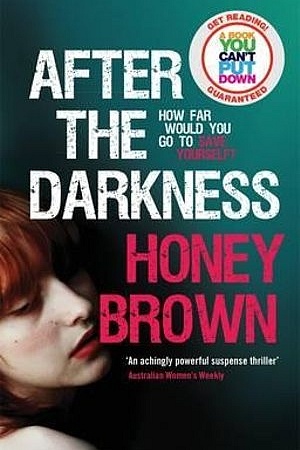The Good Daughter
Viking, $32.95 pb, 293 pp
The Good Daughter by Honey Brown
At its best, popular fiction is almost cinematic. As readers, we know what to expect but still gasp in awe as the rug is pulled from under us in pursuit of thrills, chills, and narrative twists. Honey Brown’s second novel, The Good Daughter, is a fine example of the modern ethos. It reads like a classic girl-gone-bad screenplay. Rebecca Toyer, from the wrong side of the tracks, meets Zach Kincaid, a rich boy with skeletons in his closet. They are drawn together, but family secrets threaten to drive them apart. When Zach’s mother goes missing, Rebecca is implicated in her disappearance. During the course of the narrative, she encounters drug dealers, crooked cops, and her fair share of sex, lies, and betrayal. Zach struggles to cope with his family legacy. From early on, he is the powder keg that threatens to ignite the book’s narrative.
The Good Daughter is a guilty pleasure. Filled with more lowlifes than a sports bar on Friday night, and brimming with tense scenes, it is more than willing to dwell in the uncomfortable aspects of the human psyche, if they can deliver a necessary narrative kick.
Rebecca is very believable; sassy, rebellious but self-destructive, seemingly hell-bent on placing herself in bad situation after bad situation. Her father is less credible, having left his sixteen-year-old daughter alone for weeks in a town filled with sleazes and petty criminals. The male characters, with few exceptions, are borderline psychotic. Will such a simplification of masculinity hold this book back? Will such overblown dramatics mar its literary reception? I don’t think Honey Brown cares, and I can’t say I blame her; this book is unapologetically pulp, but engaging as hell.











Leave a comment
If you are an ABR subscriber, you will need to sign in to post a comment.
If you have forgotten your sign in details, or if you receive an error message when trying to submit your comment, please email your comment (and the name of the article to which it relates) to ABR Comments. We will review your comment and, subject to approval, we will post it under your name.
Please note that all comments must be approved by ABR and comply with our Terms & Conditions.